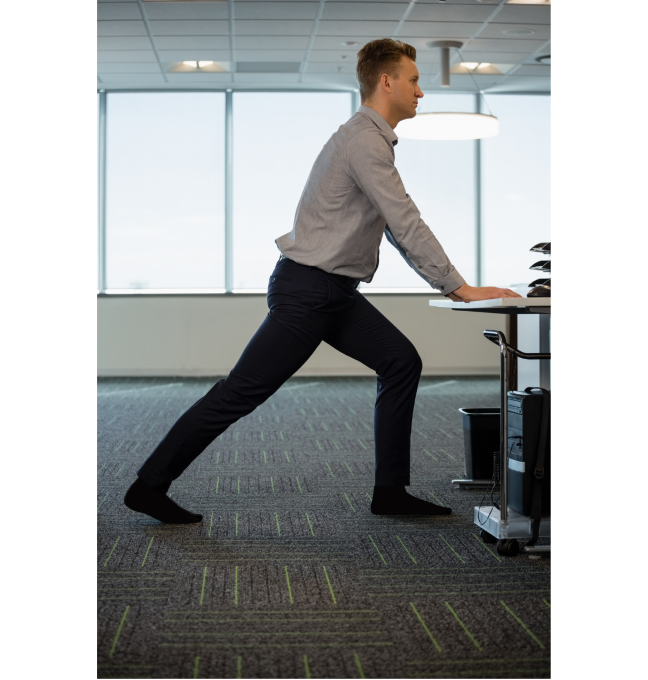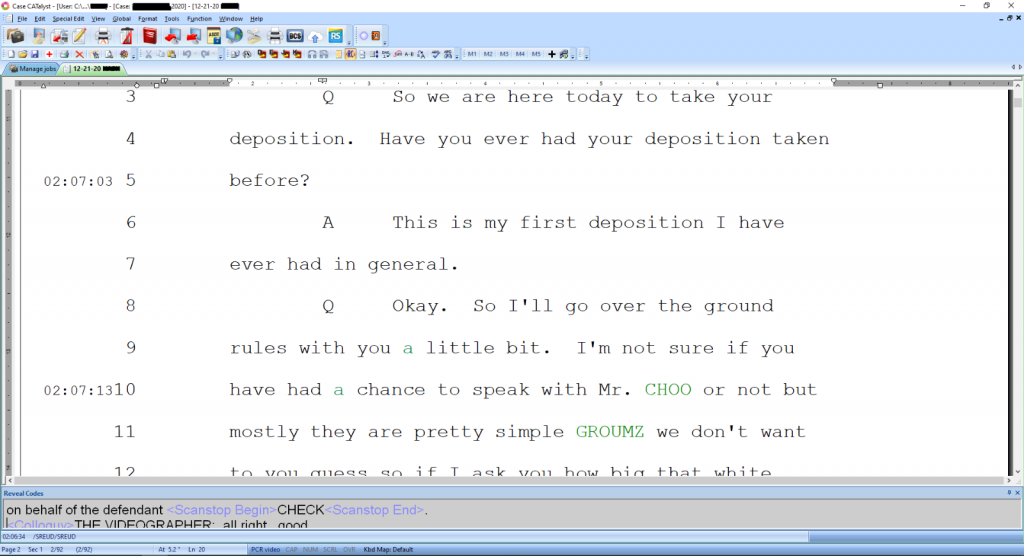We’ve all been there, a name comes through your audio that sounds unfamiliar, doesn’t match standard spelling patterns, and suddenly you’re ten minutes deep into Google with no clear answer.
When you’re scoping on a tight deadline, productivity matters just as much as accuracy. One of the fastest ways to lose momentum is getting stuck researching an unfamiliar name or term, especially when audio is unclear and time is limited.
This month’s productivity focus is all about smart, efficient research: how to find correct spellings without derailing your workflow.
The goal isn’t to solve every misspelled word mystery immediately. The goal is to:
- Keep moving
- Preserve focus
- Use context strategically
- Know when to pause and when to flag
Step 1: Always Check Exhibits First
If exhibits or documents are provided, they are your first line of defense.
Use:
- Ctrl + F to “find” within searchable documents
- Partial words
- Repeated phrases associated with the unknown term
This is often faster and more reliable than external searching.
Step 2: Then Check Phonetic & Common Spellings
Your second line of defense is phonetic searching.
If a name sounds like “Auggie,” start with:
- Common spellings (Auggie, Augie)
- Phonetically similar variations
Don’t overthink it at this stage; you’re casting a wide but intentional net.
Step 3: Add Context to Narrow the Search
Once you have a phonetic base, add context to refine your results.
Use:
- The law firm name
- Area of expertise
- State or country
- Case type or subject matter
You can also use the “+” or “-’’ symbol in Google searches to combine or remove certain terms and eliminate irrelevant results.
This helps Google work with you instead of overwhelming you.
Step 4: Use Google’s AI Overview (When Available)
Google’s AI Overview (the summary at the top of results) can be a huge time-saver, especially when:
- The name is uncommon
- The term is a term of art
- The topic is unfamiliar
Instead of clicking through multiple websites, the AI summary often gives enough nuance to confirm whether you’re on the right track, or whether you should flag and move on.
Real-World Example: Auggie ? Ogi
In one job, a name sounded like Auggie. The reporter had written something like:
AUG/KWR EU/AEGS
The first portion made sense phonetically. The second didn’t.
Rather than trying to decode every stroke, I searched:
Auggie + law firm name
Within seconds, the correct spelling appeared:
Ognjen “Ogi” Zivojnovic
This is a name I would never have guessed without:
- Phonetic searching
- Context
- Knowing when not to overanalyze the strokes
Step 5: Know When to Flag and Keep Going
If you don’t find an answer within one or two intentional searches, stop. Flag it. Keep scoping.
Very often:
- The reporter adds the correct spelling later
- Additional context appears on the next page
- A pause allows clarification
Spending excessive time early can ruin your productivity for the entire job.
Step 6: Use a Spelling Spreadsheet for Multi-Day Jobs
For team jobs or multi-day proceedings, a shared spelling spreadsheet is a major productivity booster.
Use it to:
- Log confirmed name spellings
- Avoid repeat research
- Maintain consistency across days with multiple scopists
This small habit saves significant time over the course of long assignments.
Quick Look Research Methods
- Search exhibits and documents first
- Search phonetic and common spelling
- Add contextual clues
- Use Google’s AI overview
- Look for additional context
- Flag and move on when needed
- Maintain a spelling spreadsheet
Final Productivity Reminder
Accuracy is essential but productivity protects your energy, focus, and turnaround time.
Not every question needs an immediate answer. Trust the process, use context wisely, and keep moving forward.
That’s how you scope efficiently and professionally.








